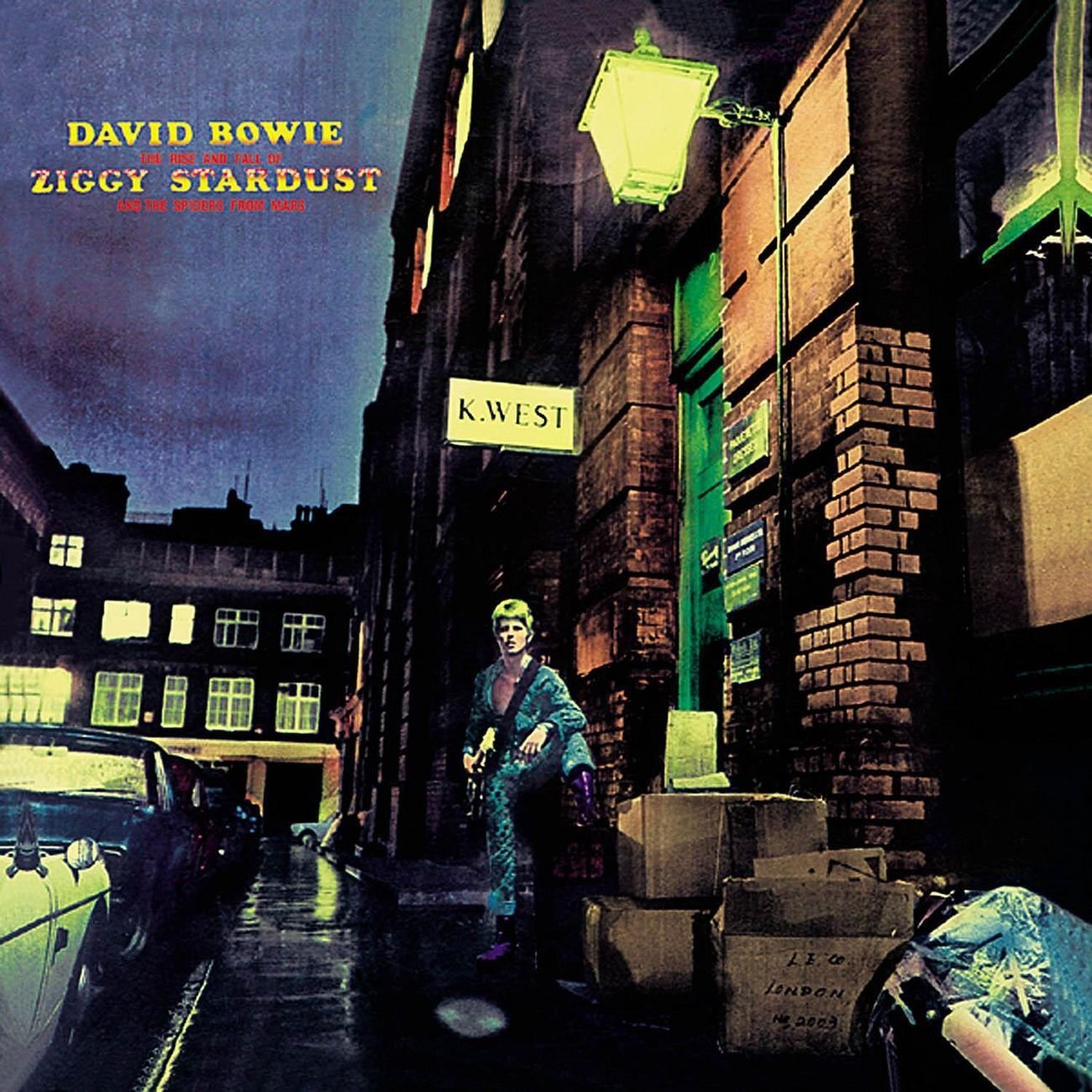9. David BowieThe Rise And Fall Of Ziggy Stardust And The Spiders From Mars

It was 1972 and I was coming out of the laying on the floor, watching the ceiling change phase. It was time to get busy now. I had a guitar I’d been playing when The Beatles and the Stones came out; I just never bothered to learn to play. That was my problem – I was a lazy bastard. And then I got into going out and doing what you’re supposed to do, getting a job and things like that. And then I left home when I was 18 and that threw a whole wrench into the thing. So now I’m coming out of the end of the psychedelic period and I’m deciding to actually do something about all these things that are in my head. All of this music is spinning around in a wild storm. So I got myself an acoustic guitar while I was on the island of Guernsey, because I was also listening to James Taylor concurrent with the psychedelic things. Fingerpicking, folk music; which way shall I go? I don’t know. So I’m experimenting with all kinds of writing. And a few years later out comes a guy who you can tell by his lyrics is an old acidhead. I mean listen to those lyrics, come on: "Freak out in a moonage daydream." But at the same time he’s saying I’ve had enough of this wimpy scene, peace and love, it’s not really working out: I think we need some energy infusing into this. "I could do with the money – I’m so wiped out by things as they are; I want to be a rock & roll star on a stage, instead of wearing a dress and being on the middle of a bill at a festival." There’s this great intent to what Bowie is doing. He’s saying okay, no more lying around dreaming, let’s put this into action. And let’s incorporate rock & roll into it, and pop songs. He put the whole damn thing together, and Ziggy Stardust was just the one that captured it for me.
It’s so trippy: ‘Five Years’, ‘Moonage Daydream’ and some of those things. But at the same time he’s harnessed it in rock songs, pop songs; he’s put it all together. The androgynous thing I didn’t get really – I was trying to find out what I can be in music at this time. I’m playing guitar and starting to write songs and they’re somewhere between hippy things and not hippy things. And Bowie sort of shows the way. He turned me on to some different kinds of music; I never knew who Lou Reed was, for instance, which we’ll come to. But I thought, if I’m a songwriter, if I’m going to make it in some way, I don’t think I can do the English accent bit. I was also rediscovering soul music at the same time. I got a Staple Singers record because I sort of missed them and then I’d bring out the Otis records again. So it all feeds together; Bowie coming along and me pulling out my old soul records. I guess I was unconsciously making decisions about what I would be if I was an artist. And it would be more singing in the tradition of soul singers than an androgynous white English guy. I didn’t think that would work for me. It was an amazing period because Bowie suddenly invented this almost, but at the same time you understood that they were rock & roll songs, you knew that he appreciated everything, like Dylan, who I’d never really been into, but you could hear Dylan in his approach as well. So it was instrumental to my career to see somebody who had a lot of influences in their music.


